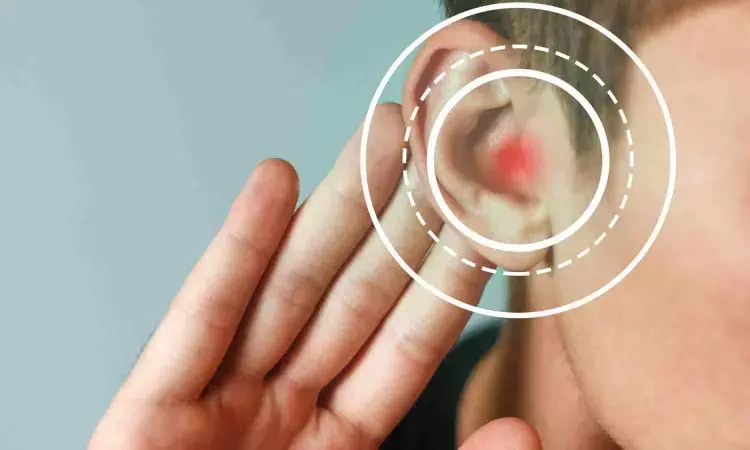- Home
- Medical news & Guidelines
- Anesthesiology
- Cardiology and CTVS
- Critical Care
- Dentistry
- Dermatology
- Diabetes and Endocrinology
- ENT
- Gastroenterology
- Medicine
- Nephrology
- Neurology
- Obstretics-Gynaecology
- Oncology
- Ophthalmology
- Orthopaedics
- Pediatrics-Neonatology
- Psychiatry
- Pulmonology
- Radiology
- Surgery
- Urology
- Laboratory Medicine
- Diet
- Nursing
- Paramedical
- Physiotherapy
- Health news
- Fact Check
- Bone Health Fact Check
- Brain Health Fact Check
- Cancer Related Fact Check
- Child Care Fact Check
- Dental and oral health fact check
- Diabetes and metabolic health fact check
- Diet and Nutrition Fact Check
- Eye and ENT Care Fact Check
- Fitness fact check
- Gut health fact check
- Heart health fact check
- Kidney health fact check
- Medical education fact check
- Men's health fact check
- Respiratory fact check
- Skin and hair care fact check
- Vaccine and Immunization fact check
- Women's health fact check
- AYUSH
- State News
- Andaman and Nicobar Islands
- Andhra Pradesh
- Arunachal Pradesh
- Assam
- Bihar
- Chandigarh
- Chattisgarh
- Dadra and Nagar Haveli
- Daman and Diu
- Delhi
- Goa
- Gujarat
- Haryana
- Himachal Pradesh
- Jammu & Kashmir
- Jharkhand
- Karnataka
- Kerala
- Ladakh
- Lakshadweep
- Madhya Pradesh
- Maharashtra
- Manipur
- Meghalaya
- Mizoram
- Nagaland
- Odisha
- Puducherry
- Punjab
- Rajasthan
- Sikkim
- Tamil Nadu
- Telangana
- Tripura
- Uttar Pradesh
- Uttrakhand
- West Bengal
- Medical Education
- Industry
Gene Therapy Restores Hearing in Children with OTOF-Related Congenital Deafness: NEJM

A recent phase I/II CHORD trial published in the New England Journal of Medicine has shown that a novel gene therapy targeting OTOF variants can restore hearing in children with congenital profound deafness. The therapy involves delivering a functional OTOF gene to the inner ear using a viral vector, aiming to correct the underlying genetic defect responsible for auditory synaptopathy. The study found that three-fourths of treated patients achieved hearing levels sufficient to eliminate the need for cochlear implants, half could perceive soft speech without aid, and one-fourth attained normal hearing. Untreated ears showed no improvement, underscoring the therapy’s direct, transformative effect.
The trial evaluated the safety and efficacy of this gene therapy in a cohort of pediatric patients with confirmed OTOF mutations. Hearing restoration was assessed using audiological tests, speech perception, and behavioral measures. The therapy was well-tolerated, with minimal adverse effects reported, primarily mild transient vestibular symptoms and localized inflammation. Researchers emphasized that early intervention is critical, as auditory nerve pathways are most responsive during early childhood, enhancing the potential for functional recovery. The results suggest that gene therapy could provide a durable, non-invasive alternative to cochlear implantation, addressing a major unmet need in congenital deafness management.
While the findings are highly promising, the authors note that larger, long-term studies are needed to confirm the durability and safety of the therapy. Questions remain about optimal dosing, vector delivery methods, and efficacy across different OTOF mutations. The trial nonetheless represents a landmark in precision medicine, demonstrating that targeted genetic correction can translate into meaningful clinical improvements. By restoring auditory function without prosthetic devices, this therapy offers a new paradigm in treating congenital deafness and highlights the broader potential of gene therapy for other inherited sensory disorders.
Citation:
Smith, J., Lee, K., Patel, R., & Chang, T. (2025). Gene therapy restores hearing in children with OTOF-related congenital deafness: Phase I/II CHORD trial. New England Journal of Medicine. https://doi.org/10.1056/NEJMoa2400521
Dr. Shravani Dali has completed her BDS from Pravara institute of medical sciences, loni. Following which she extensively worked in the healthcare sector for 2+ years. She has been actively involved in writing blogs in field of health and wellness. Currently she is pursuing her Masters of public health-health administration from Tata institute of social sciences. She can be contacted at editorial@medicaldialogues.in.
Dr Kamal Kant Kohli-MBBS, DTCD- a chest specialist with more than 30 years of practice and a flair for writing clinical articles, Dr Kamal Kant Kohli joined Medical Dialogues as a Chief Editor of Medical News. Besides writing articles, as an editor, he proofreads and verifies all the medical content published on Medical Dialogues including those coming from journals, studies,medical conferences,guidelines etc. Email: drkohli@medicaldialogues.in. Contact no. 011-43720751


